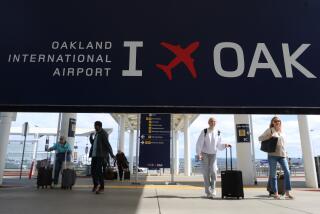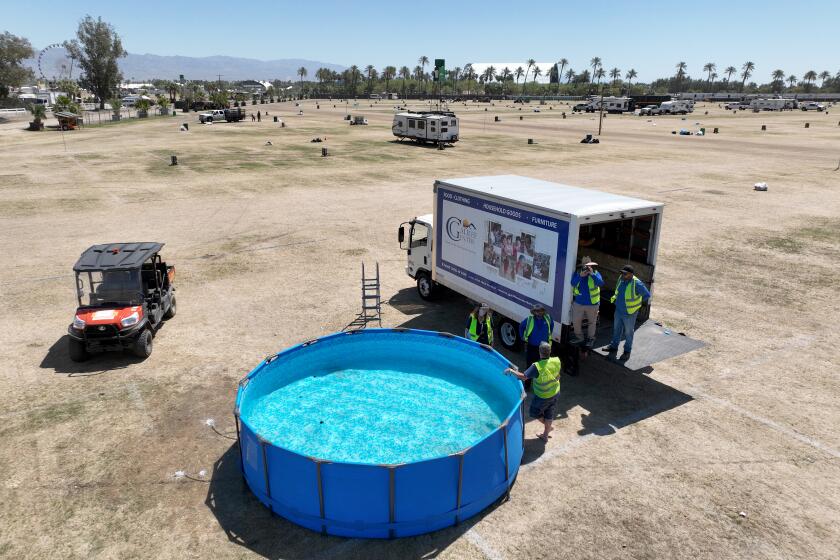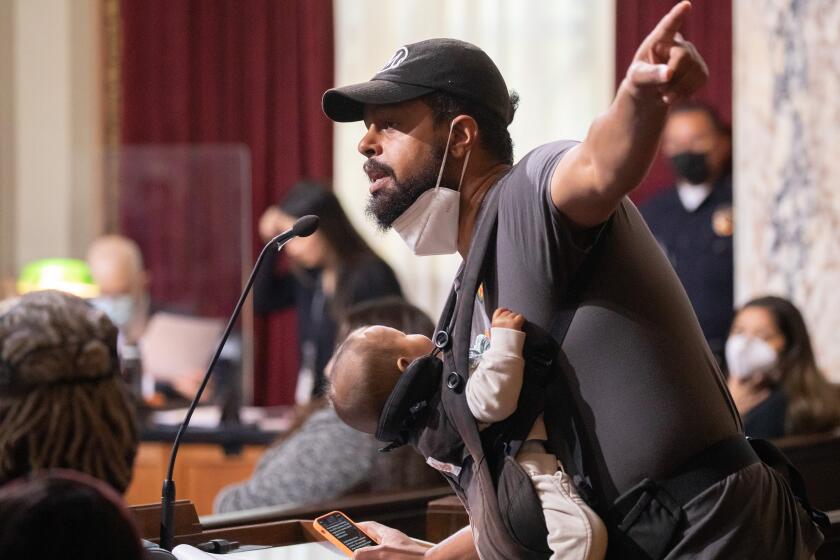California-based flight-sharing company must remain closed, federal court rules
A California-based flight-sharing company that offered an online service to connect private pilots with the traveling public must remain closed under a recent federal court decision that restricts Uber-like service in the skies.
The ruling late Friday by the U.S. Court of Appeals for the District of Columbia Circuit upholds a Federal Aviation Administration decision in 2014 to shut down Flytenow Inc., a start-up that adapted the methods of Uber and Lyft, the app-based ride-share companies, to air travel.
A panel of three justices agreed with the FAA’s position that pilots who offered flights on the company’s website amounted to unregulated air carriers and had to comply with more stringent safety and licensing requirements designed for commercial operations.
“We have no difficulty upholding the FAA’s interpretation of its regulations in this case,” the justices stated in their opinion, which also affects other flight-sharing operations.
The company, which started on the East Coast early last year and later moved to Mountain View in Silicon Valley, ran an Internet site where private pilots posted their flight plans and potential passengers could arrange to fly with them.
Flytenow’s founders said their service attracted about 25,000 members, including travelers, aviation enthusiasts and several thousand private, commercial and air transport pilots. They stopped listing flights in late 2014 and challenged the FAA in court.
Attorneys for the business asserted that the operation complied with federal regulations because pilots equally share the cost of fuel, aircraft rentals and airport fees with the people who fly with them — a long-established practice.
They noted that since the FAA’s expense-sharing rule was adopted in 1963, private pilots have regularly posted written notices of their planned trips at airports, kiosks, colleges and universities as well as other public places.
The FAA contended, however, that pilots who list flights online hold themselves out to a broad segment of the public beyond their friends and acquaintances as available to provide air travel for compensation, in this case expenses.
The government also argued that Flytenow’s pilots must obtain commercial operator’s licenses, which subject them to tougher safety requirements and additional qualifications.
Jon Riches, an attorney at the Goldwater Institute in Arizona who represented Flytenow, said the organization will review the opinion and consider whether to seek a rehearing or an appeal to the U.S. Supreme Court.
“Courts give extreme deference to regulatory agencies often at the expense of innovation,” Riches said. “The result is less choice for consumers and less innovation in general aviation.”
Last week’s ruling affects other flight-sharing services, such as Airpooler Inc., which operated in Boston, Palo Alto and San Diego. Like Flytenow, the company received an FAA notice that its online operation violated federal regulations.
The situation has attracted the attention of Rep. David Schweikert (R-Ariz.), who introduced legislation this year to legalize flight-sharing operations like Flytenow and Airpooler. His bill is pending in the House.
Follow @LADeadline16 for transportation and aviation news.
More to Read
Start your day right
Sign up for Essential California for news, features and recommendations from the L.A. Times and beyond in your inbox six days a week.
You may occasionally receive promotional content from the Los Angeles Times.






